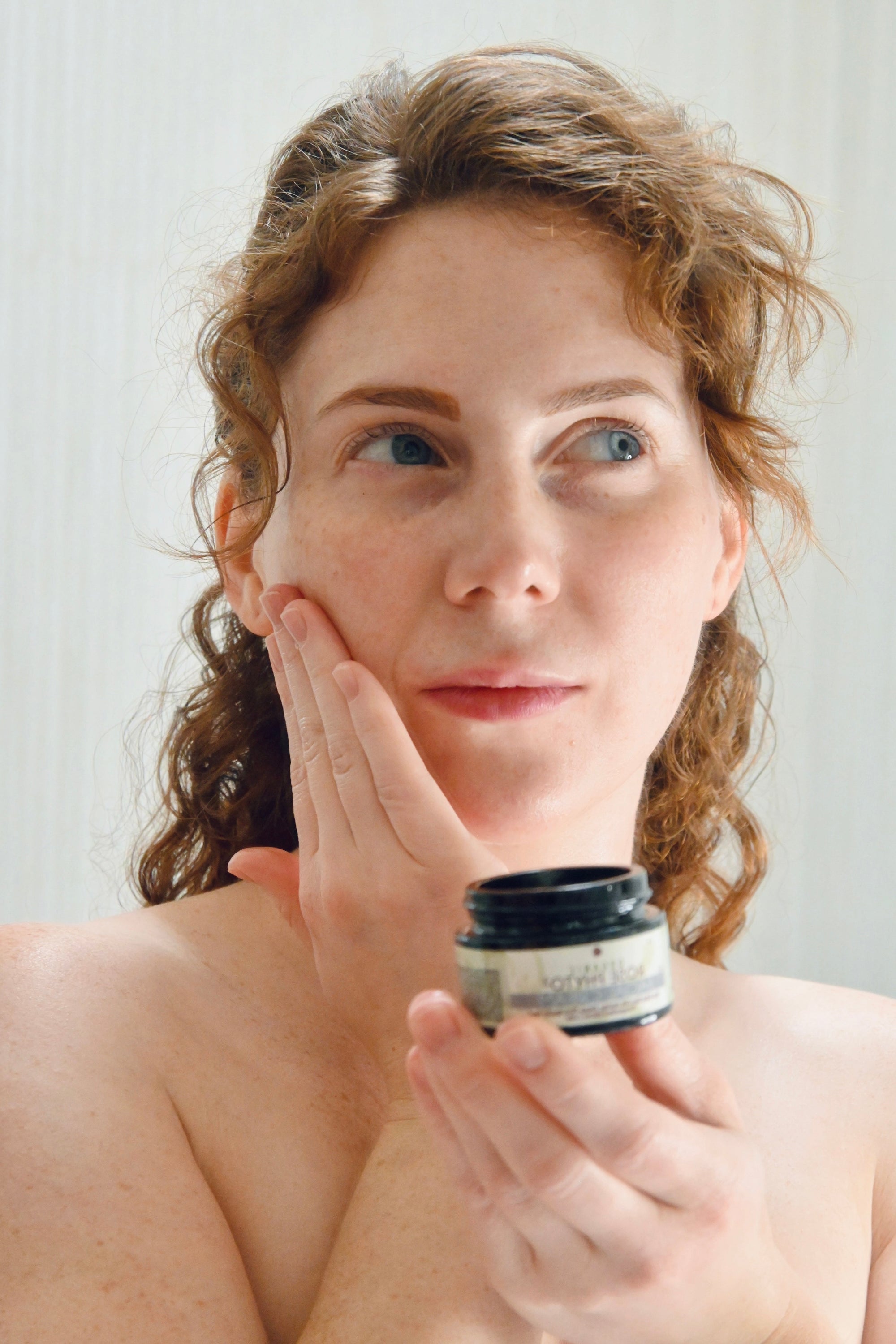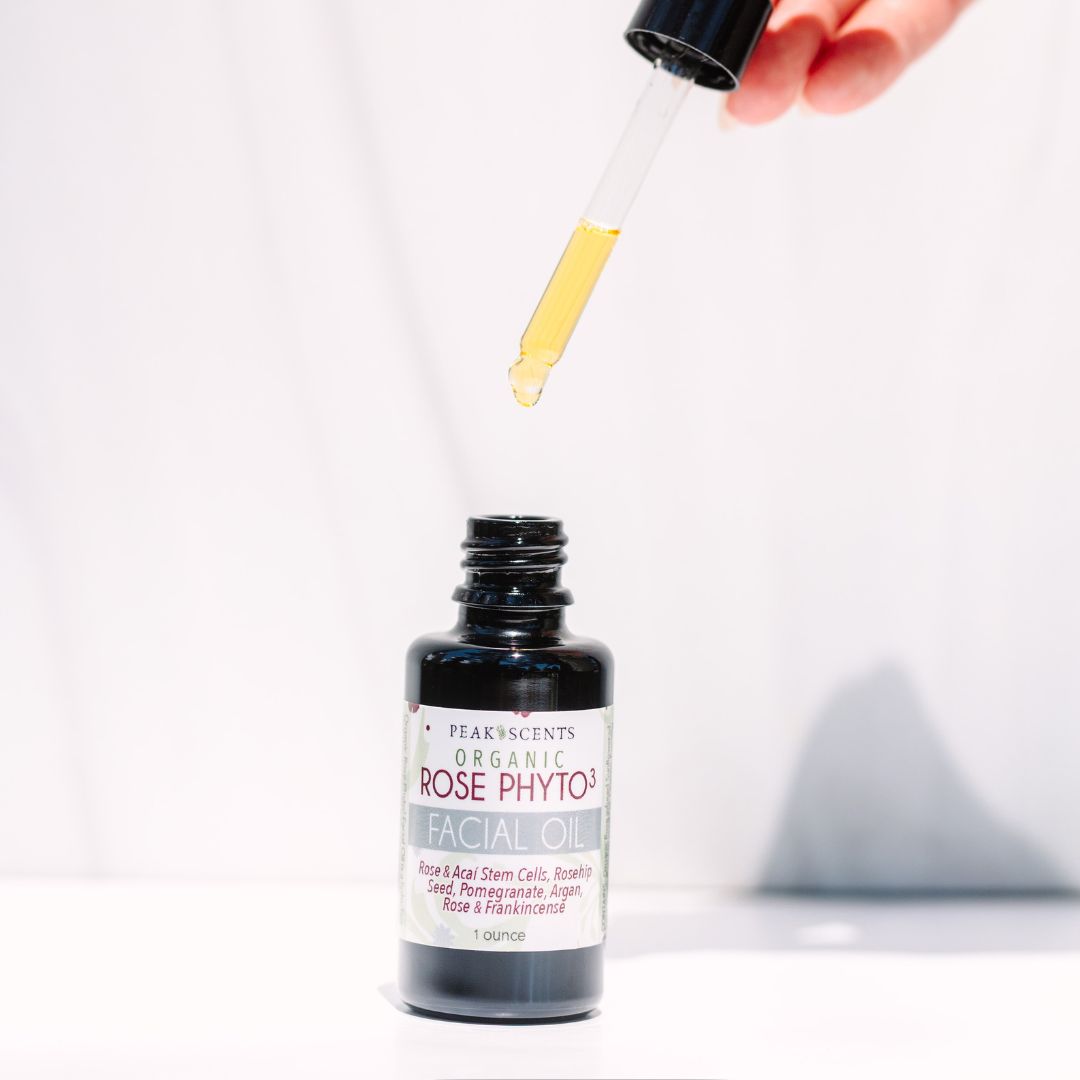As the founder of Peak Scents Plant-Based Skincare, I’ve always been fascinated by the intersection of traditional wisdom and cutting-edge science in skincare. Recently, collagen has taken center stage, with claims ranging from its ability to reverse aging to its role in boosting natural collagen production through topical creams and ingestible supplements.
So, does collagen really work as advertised? Let's explore the facts and uncover what truly supports skin health.
Understanding Collagen and Its Role in Skin Health
Collagen is the most abundant protein in the human body, providing structural support and elasticity to the skin, ligaments, and connective tissues. The primary type found in skin, Type I collagen, is produced by fibroblasts in the dermis. As we age, collagen production declines due to intrinsic factors like genetics and hormonal changes, as well as extrinsic factors like UV radiation and pollution. This decline leads to visible signs of aging, including wrinkles, sagging, and loss of firmness.
While it's clear that maintaining healthy collagen levels is crucial for youthful skin, there’s a lot of misinformation about how to effectively boost collagen.
Can Topical Collagen Boost Skin's Natural Collagen?
The short answer: No.
Collagen molecules are simply too large to penetrate the epidermis, the skin's outer layer. Applying collagen-infused creams may temporarily hydrate and plump the skin, but they do not stimulate collagen production in the dermis where it matters.
Collagen-Boosting Ingredients That Work
Instead of focusing on topical collagen, science points to several proven ingredients that can enhance your skin's natural collagen synthesis:
1. Vitamin C
Vitamin C is a powerful antioxidant that stimulates the production of Type I and III collagen. Research shows it also neutralizes free radicals that degrade collagen (ii). However, formulating with ascorbic acid can be challenging due to its instability. Stable derivatives like ascorbyl glucoside are effective alternatives.
2. Hyaluronic Acid (HA)
Known for its hydrating properties, HA also plays a role in promoting collagen production. Low-molecular-weight HA penetrates deeper into the skin, stimulating collagen synthesis and improving elasticity.
3. Bakuchiol
A plant-based alternative to retinol, bakuchiol promotes collagen production while being gentler on the skin. A 2014 study demonstrated its ability to stimulate Types I, III, and IV collagen and reduce signs of aging (iv).
4. Peptides
Peptides are short chains of amino acids that serve as powerful messengers for the skin, signaling fibroblasts to boost collagen production and maintain skin’s elasticity. Each of these peptides that we use in our Rose Phyto³ collection brings unique benefits to support a healthy, vibrant complexion:
-
Hydrolyzed Rice Peptides: Derived from rice protein, these peptides are rich in antioxidants and help reduce inflammation while enhancing the skin's firmness and hydration levels.
-
Palmitoyl Tripeptide-38: This advanced peptide targets six essential components of the skin matrix, including collagen and hyaluronic acid, to enhance firmness, smoothness, and hydration.
Together, these peptides work synergistically to stimulate collagen production, protect against collagen breakdown.
5. Plant Stem Cells
Plant stem cells are a groundbreaking innovation in skincare, offering powerful benefits for skin regeneration and repair. These plant-based cells are rich in antioxidants, growth factors, and bioactive compounds that help reduce collagen breakdown and promote collagen synthesis, resulting in firmer, more resilient skin.
-
Collagen Protection and Boost: Plant stem cells work by stimulating the skin's natural regenerative processes. They reduce the breakdown of collagen by inhibiting enzymes responsible for its degradation, ensuring skin maintains its firmness and elasticity.
-
Enhanced Skin Renewal: The growth factors in plant stem cells encourage the production of new skin cells and collagen fibers, revitalizing the skin and making it appear more plump and youthful.
-
Anti-Aging Effects: These stem cells can target the root causes of aging by supporting the skin’s natural repair mechanisms, which helps restore skin thickness and structure over time, leading to a more even, smooth complexion.
-
Powerful Antioxidants: Plant stem cells are rich in antioxidants, which help protect skin from environmental stressors and free radicals, further preventing premature aging and collagen loss.
By incorporating plant stem cells into your skincare routine, you can enhance collagen production, reduce the breakdown of existing collagen, and support a firmer, healthy complexion.
6. Green Tea Extract
Rich in catechins, green tea extract helps combat collagen-degrading enzymes and oxidative stress. Studies suggest its ability to boost collagen production and improve skin elasticity.
What About Collagen Supplements?
Unlike topical collagen, ingestible collagen peptides have shown promise. Hydrolyzed collagen is broken into smaller peptides that may be absorbed into the bloodstream and delivered to the dermis. Research indicates that daily collagen supplementation can improve skin elasticity, hydration, and collagen density.
Pro Tip:
-
Ensure the supplement is hydrolyzed for better absorption.
-
Pair collagen with Vitamin C, which aids in collagen synthesis.
Final Thoughts
At Peak Scents, our mission is to empower you with science-backed products rooted in transparency. The pursuit of radiant, healthy skin is not about chasing trends but understanding what works and why. While topical collagen might be hydrating, it doesn’t boost your skin’s natural collagen production. We harness the power of plant-based, collagen-boosting ingredients to create formulations that genuinely support skin health. Our Rose Phyto³ collection, for example, combines peptides, vitamin C, and hyaluronic acid to deliver clinically-backed results without synthetic chemicals.
Together, let’s redefine what it means to mature gracefully—with knowledge and confidence.

